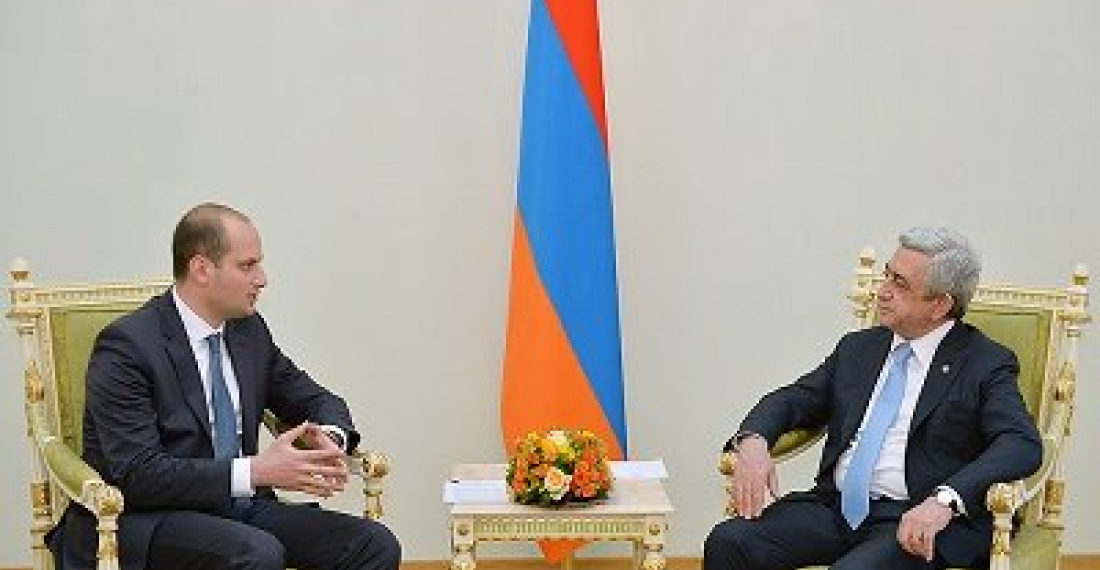"For Armenia the relations with friendly Georgia are precious, and our country is interested in further deepening and strengthening these relations". This was stated by Armenian President Serzh Sargsyan when on Tuesday (11 April) he met visiting Georgian Foreign Minister, Mikheil Janelidze at the Presidential Office in Yerevan.
Welcoming the guest, the President of Armenia expressed hope that Minister Janelidze's official visit to Armenia will be productive and will give a new impetus for the strengthening of interstate relations.
"The President of Armenia and Minister of Foreign Affairs of Georgia noted with satisfaction that the Armenian-Georgian relations are developing dynamically: there exists a vibrant political dialogue, economic ties are expanding and cooperation in the humanitarian area is deepening", said a statement posted on the website of the Armenian President.
The statement said that during the discussions opportunities of developing cooperation in the multilateral format, dialogue with the EU and programs of cooperation, regional problems and challenges, as well as the Nagorno-Karabakh peace process were also discussed. "The President of Armenia and Minister of Foreign Affairs of Georgia underscored the necessity of stability and peace from the viewpoint of regional development", the statement added.
Earlier the Georgian Foreign Minister also had a meeting with his Armenian counterpart, Eduard Nalbandian.
source: commonspace.eu
photo: Foreign Minitser of Georgian Mikheil Janelidze with the President of Armenia Serzh Sargsyan at their meeting in Yerevan on 11 April 2017. (picture courtesy of the press service of the President of Armenia).






